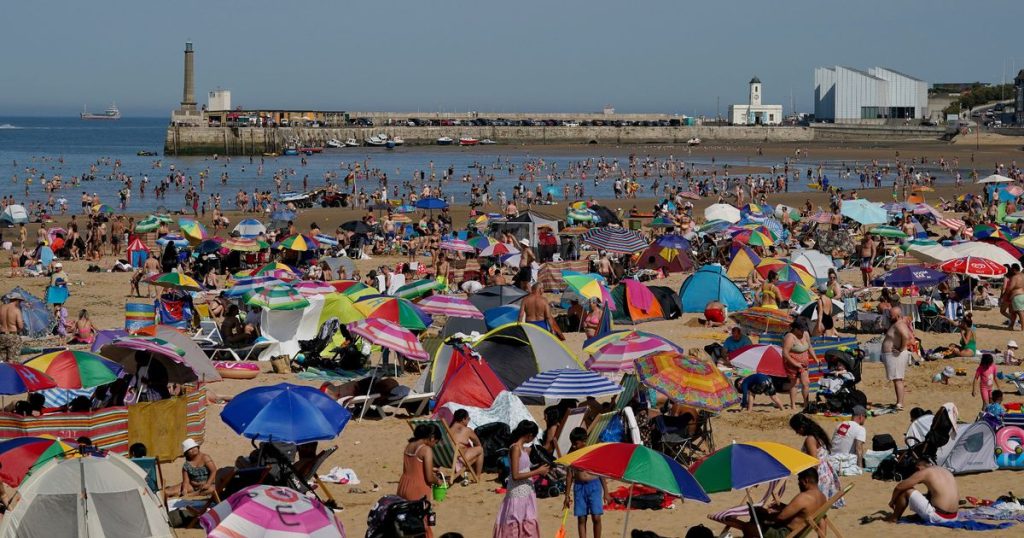The idea of imposing a tourist tax in Margate, Broadstairs, and Ramsgate has been proposed by Thanet District Council due to the increasing costs associated with visitors. The council is seeking ways to generate revenue and mitigate the impact of tourists on the local community. The proposal aligns with similar measures undertaken in other UK destinations, such as Manchester and Cornwall. The council recognizes the importance of the visitor economy to the region but aims to address the additional costs incurred by residents.
A report presented to the council highlighted the need to balance a thriving visitor economy with the burden placed on locals by summer visitors. Suggestions include imposing additional council tax on second homes, introducing a modest tourism tax on overnight stays, and ensuring holiday lets contribute to covering the costs they generate. Other recommendations include addressing beach pollution, providing paid-for facilities like beach huts with overnight accommodations, and exploring various financial management strategies. This comprehensive review by the Tourism Review Working Group aims to address several key areas related to tourism impact on the council’s services and local communities.
Local Tory councillor, John Davis, expressed support for taxing holiday lets and Airbnbs, noting the strain on housing resources posed by short-term rentals. Thanet District Council emphasized the significance of tourism in supporting jobs and generating revenue for the area. However, there is currently no formal proposal to implement a tourist tax, emphasizing that neither the central government nor local councils have the power to introduce such a tax in England. The discussion around a potential tourist tax in Margate and its surrounding seaside towns reflects the complexities involved in balancing economic benefits with social and environmental impacts.
While the idea of a tourist tax may face challenges in implementation, the council’s deliberation demonstrates a proactive approach to managing the growing costs associated with tourism. The Tourism Review Working Group’s recommendations encompass various aspects of tourism impact, from beach management to financial management strategies. By exploring options like levying additional taxes, addressing pollution issues, and enhancing paid-for facilities, the council aims to strike a balance that benefits both the local economy and residents. The proposal aligns with broader trends in tourist taxation seen in other UK destinations and underscores the need for sustainable tourism management practices.
The discussion surrounding the introduction of a tourist tax in Margate, Broadstairs, and Ramsgate highlights the complexities of managing tourism impact in coastal regions. While tourism plays a vital role in supporting local economies, the influx of visitors can lead to additional costs for residents and strain on resources. By considering measures like a tourism tax, the council aims to address these challenges and secure funding to offset the impacts of tourism. The proposed tax on overnight stays and other recommendations reflect a comprehensive approach to managing the effects of tourism on local communities, emphasizing the importance of sustainable tourism practices in coastal regions.


